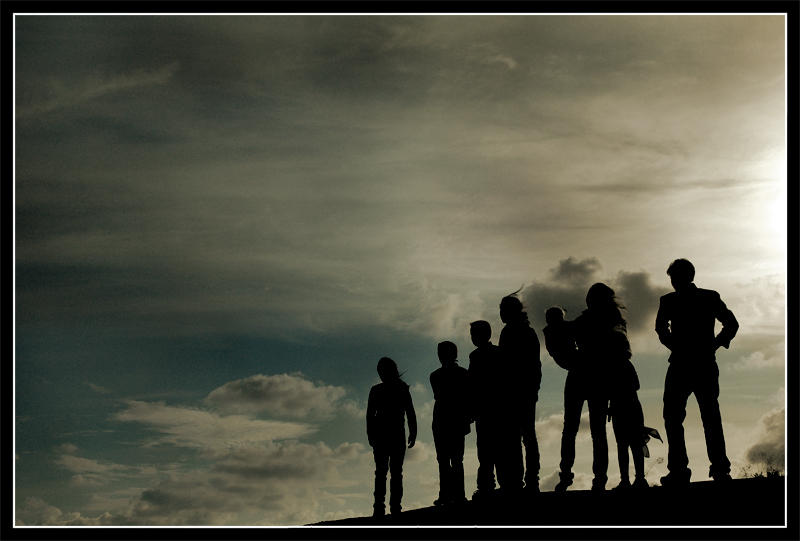In my studies, while transmitting power wirelessly via antennas, the power dissipates in terms of distance where the further the receiver is, the weaker the power becomes which is logical and scientifically proven. Does this also apply to an individual’s character with respect to identity without taking into account outer effects in which complexity of a behavior increases? Every Palestinian, whether old or young, experiences the consequences of not being in their homeland in a variety of categories such as social standards where some cannot work or may not travel. In a search of freedom, where none can return to his homeland because either he needs a visa or because the middle-eastern part of the world would treat him differently by suspecting him working with Israel or Groups of Palestine or even terrorism. In search for his lost identity, a regular person would search where the sunrise is unquestionable, a stable place for living and quenching the human’s needs. Palestinians immigrate to many parts of the world out of the Middle East in order to survive, however, one may think that a Palestinian soul may be blended and gradually lost within the process of living, just like the case of power and distance…right? In fact, whether they become leaders, rich, famous, not having Arabic reflection or no proof of their Palestinian roots. NONE deny that he is originally Palestinian, but may not be obvious not proud to mention, but some of Palestinians who reside in the middle east tend to fake their identity by painting their lifestyle intentionally by others to lose their identity, those are labeled scum and hypocrite in my hometown. If you have neither respect nor honesty to your homeland, then you don’t respect yourself and if you don’t respect yourself… who will respect you?
Bottom line, the relationship between those Palestinians who are away from hometown and hometown are linearly stable and non linearly increasing, for a person will search for his identity and end up being a moving mirror of his hometown. May God bless us all; wherever we are we are one. I also am proud of this… and I will provide this post some examples I know.

Anas Sharbini (born 21 February 1987 in Rijeka[1]) is a Croatian football midfielder playing for HNK Hajduk Split in the Croatian first division.
He is the brother of striker Ahmad Sharbini of Hajduk Split. His father, Jamal Sharbini, is a Palestinian born in Damascus, Syria.[

Elías Antonio Saca González (born in Usulután, 9 March 1965) is a Salvadoran politician and was the President of El Salvador. He was elected President in 2004 to serve a five-year term that ended in 2009.
Saca is descended from Palestinian (Catholic Christian) immigrants who arrived in El Salvador in the early 20th century from the West Bank town of Bethlehem.

Hazem "Haz" Ali[1][5][6] (born December 20, 1978)[1][2] is an American former professional wrestler and manager of Palestinian descent.[5] He is best known by his ring name Armando Estrada and for his work with World Wrestling Entertainment on its ECW brand.[3]

Zainab Al Khatib, Female Danish Team's Goalkeeper

Nicolás Alejandro Massú Fried (born October 10, 1979, in Viña del Mar, Chile), nicknamed Vampiro (Spanish: "vampire"), is a Chilean tennis player, a former world number nine in singles, and a two-time Olympic gold medalist. He is the only male player to have won both the singles and doubles gold medals in the same Olympic Games in modern (1988 ff.) Olympic tennis.[1]
His father, Manuel Massú, is of Palestinian Ancestry
Edward Wadie Saïd (Arabic pronunciation: [wædiːʕ sæʕiːd] Arabic: إدوارد وديع سعيد, Idwārd Wadīʿ Saʿīd; 1 November 1935 – 25 September 2003) was a Palestinian-American literary theorist and advocate for Palestinian rights. He was University Professor of English and Comparative Literature at Columbia University and a founding figure in postcolonialism.[1] Robert Fisk described him as the Palestinians' "most powerful political voice."[2]
Le Trio Joubran (Arabic: الثلاثي جبران) is a Palestinian oud band, consisting of the three brothers Samir, Wissam and Adnan Joubran from the city Nazareth. The Joubran brothers come from a well-known family with a rich artistic heritage. Their mother, Ibtisam Hanna Joubran, sang the Muwachahats (poems that originated in Arab Spain) while their father is among the most renowned stringed-instrument makers in Palestine and in the Arab world
Melechesh is an black metal band that originated in Jerusalem. The band started their career in Jerusalem (and Bethlehem) and operated from there between 1993–1998; however, they have resided mainly in Amsterdam since 1998 for several personal, professional and demographic reasons.
Dr.Ali Ghrayeb,
Associate Professor
Concordia Research Chair in High Speed Wireless Communications
I personally took a course under him and he influenced my life big time.
Accept my kindest regards,
Fathi Albatie





